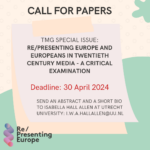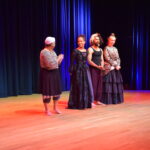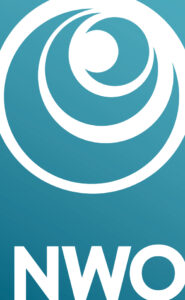“To support culture means supporting the communities and individuals behind it”: Re/presenting Europe members offer advice to UNESCO’s report on Dutch culture.
On November 17th, Re/Presenting Europe project members Claudia Marinelli and Jonathan Donken participated in the Dutch UNESCO Commission on the importance of culture to society. The council’s report, published in November 2023, advises the Dutch government to create policies that do justice to the richness and diversity of cultural activities in the Netherlands, notably those that have been neglected or underfunded, such as the urban arts.

Our team members and colleagues Claudia and Jonathan were contributors to the report entitled ‘On(ver)vangbaar. De innovatieve kracht van the culture’, Claudia Marinelli, a trained social worker and passionate advocate of hip hop and breaking, and Jonathan Donken, a lifelong fan of hip hop, trained fashion-creator, and policy-worker, are specialists in cultural education. They play a vital role in building networks and shaping cultural policy through their work at the National Knowledge Institute for Cultural Education and Amateur Arts (Landelijk Kennisinstituut Cultuureducatie en Amateurkunst, LKCA for short). Claudia and Jonathan are part of the larger Hip-hop and Urban arts team in the project engaged in community-based research and activity in the Dutch Hip-hop scene.
Claudia’s column for the report, ‘The Importance of Being Present in the Field,’ got straight to the point. The title says it all – you cannot build a true picture of what goes on in the community from behind your desk; you must get out there and be where it happens. Claudia writes: “You get a picture of what’s going on by listening. by taking the time to build the relationship and see from there how and if the community wants to work with you. “Help” is not the right word for what someone from the system can do in the community. It doesn’t recognize that there is an equal footing between communities and the system.” This is why community networks are so important. Claudia explains that the Hip-hop Knowledge Circle (Hip-hop Kenniskring), a network of hip-hop organizers, policymakers, and researchers, was created as a way of ‘working with’ each other, not top-down ‘helping.’ In the network, all participants share their knowledge with each other – as in a Hip Hop cipher. It is a place to build bridges between the various networks.
Claudia’s column was one of many contributions that collectively led the advice committee to conclude that certain forms of expression and creativity are marginalized or ignored, creating limited funding opportunities, limited access to cultural institutions and distribution channels, and limited exposure and representation in traditional cultural institutions. Policymakers and funding bodies frequently overlook how many creators and communities from “the culture” have the power to raise social issues, give a voice to marginalized communities and effect change. Therefore, supporting communities and individuals is fundamentally important in creating “the culture”.

Jonathan Donken’s powerful words from the podium at the presentation of the report captured his feeling (shared by audience members who nodded and clapped) that the report was a start, but it also made him upset that ‘makers’ and audiences – the folk ‘in the culture’ had to work so hard to be heard. This was the first such report, and while a milestone, it barely scratched the surface of what needed to be done. He was joined on stage by Halima el Ghamarti, Concrete Blossom, Zineb Seghrouchni, Glenn Abrokwa, Amal Alhaag, Larry Appiah, Mohamed Attaibi, Cleo Boland, Cissy Gressmann, Dennis de Groot, Jamal Jama, Munganyende Hélène Christelle, Jefferson Osei, Amira al Rawi, Armin Shah, Jamila Smit, Prof. Soortkill, Randy Telg, Navin Thakoer, Giorgio Toppin, Onitcha Toppin, Noble Goods, Iriée Zamblé, Miriam Geerdes-Gazzah en Gerard Rooijakkers who added their perspectives. The ceremony began with a moving minute of silence for the suffering in Gaza and Sudan, led by Munganyende Hélène Christelle, a spoken word artist, who delivered a poem, and after the panel discussion, copies of the report were handed out. We look forward to more discussions of the report and seeing how policy makers and state funding bodies take up its recommendations.
You can read the full UNESCO report here.

 Previous Post
Previous Post Next Post
Next Post